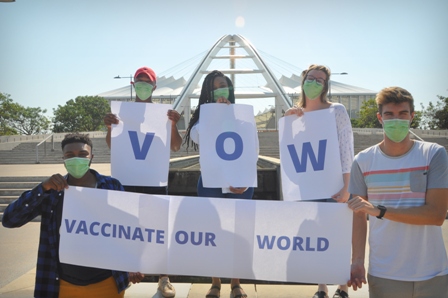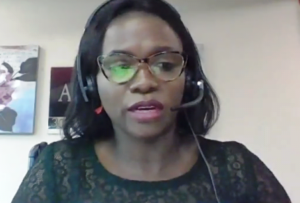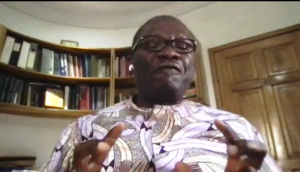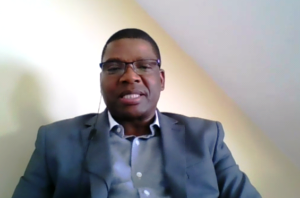-
Experts warn developed countries against COVID-19 Nationalism
Experts have warned developed countries currently overstocking the COVID-19 vaccine for exclusive vaccination of their citizens not to consider their shores safe from further rampage of the dreaded virus if African and other less privileged countries cannot access the vaccine.
Panelists at the Vaccinate Our World (VOW) Pan African virtual discussion held on Wednesday, May 21 submitted that the only way to beat the pandemic is to quickly vaccinate as many people as possible in all countries of the world without leaving any region out.
Hosted by the largest global AIDS organisation, AIDS Healthcare Foundation (AHF) and aimed at transferring the know-how learnt from the fight against HIV to the war against COVID-19, the digital campaign tagged #VaccinateOurWorld and #vownow called on world leaders to take action to vaccinate the world against COVID-19.
“If the whole world is not vaccinated, Africa, along with all developing countries, runs the risk of becoming a breeding ground for new variants,” says Dr. Penninah Lutung, Bureau Chief of AHF Africa.
This was also echoed by Prof. Christian Happi, a professor of Molecular Biology and Genomics and director of African Center of Excellence for Genomics of Infectious Diseases (ACEGID), Nigeria.
He stressed the need for the world to take the issue of equitable sharing, distribution or administration of the Covid vaccine seriously to avoid vaccine failure in the nearest future.
“The risk we are having is the fact that if vaccines are not deployed quickly, if large number of Africans are not vaccinated as soon as possible, we may end up having a situation whereby we will have new variants that are emerging that may not even respond to all the vaccines.
“That’s why we think vaccine nationalism is really not something we should encourage. Countries that are stocking vaccines and hoping that they are safe are not really because we are in a global world and as long as any part of the world is not vaccinated quickly, we may have a situation whereby all the vaccines we have out there may not respond to certain variants that will appear in some areas because transmission is still ongoing.”
Prof. Happi disclosed that Africa is not relenting in its fight against COVID-19, as the continent has drawn from its experience in other infectious disease epidemics such as Lassa Fever and Ebola, a factor that has contributed to the low level of case fatality of COVID-19 in the continent.
“One of the major lessons that we learnt from Ebola was the power of genomics epidemiology in order to understand the transmission and contain outbreak. Nigeria successfully contained an outbreak of Ebola in 2016 in 93 days simply because they were driven by technology. We were able to generate the first 90 genoms of Ebola in west Africa in 2015 and used the information to guide the response in many countries in Africa. It is the same thing we have done now.
“The first genom of SARS Cov 2 was done in Nigeria within 48 hours and we used the information to guide public health response. A lot of people will be wondering how is Africa navigating this pandemic. The case fatality rate is reduced. There have been some arguments that it has to do with immunity and so on but the reality is that behind the scene there’s a lot of technological output that is guiding Africa’s response.
“For instance, in Nigeria, we’ve sequenced hundreds of genoms of SARS COVID 2. We’ve identified variants that came into the country. We’ve identified new variants that emerged from Nigerians staying in other parts of the world and we used this information to identify all sorts of community transmission.
“African Heads of state also learnt from the Ebola experience of 2014 and 2016 and set up Africa CDC which has the mandate to coordinate epidemics and pandemics in the continent. African countries lock down almost at the same time, coordinated by Africa CDC. At the same time, they leverage on exiting platforms, they used the academia and research facilities in order to generate the data needed to guide public health response.
“We had sequence samples not only from Nigerian but many countries in the continent. These information were processed and sent back to the countries so they made the information actionable. They know where the hot spots are, they know exactly when new variants emerged and they know what to do.
“South Africa is on top of the new variant there and was able to know which vaccine would work and which one would not.
“We are doing this in a very coordinated manner across the continent. In south Africa, they identified the B1 T51. In Nigeria we identified another variant which is the B1525. These are the two major variants that are actually presenting high risk to some of the vaccines because they have mutations in the target areas of the vaccine and also in the areas of neutralizing antibodies of the immune system,” Prof Happi further said.
Other panelists at the conference included Allan Maleche, Executive Director of KELIN and the Board Member Developing County NGOs of the Global Fund Board; Professor Jeffrey Mphahlele, Vice President of the South African Medical Research Council;Thokozani Ndaba, Founding Member and current Executive Director of Ntethelelo Foundation in Johannesburg: Glamour Magazine Woman of the Year in Activism category 2018 and Alice Kayongo, AHF Regional Policy and Advocacy Manager for East and West Africa.




